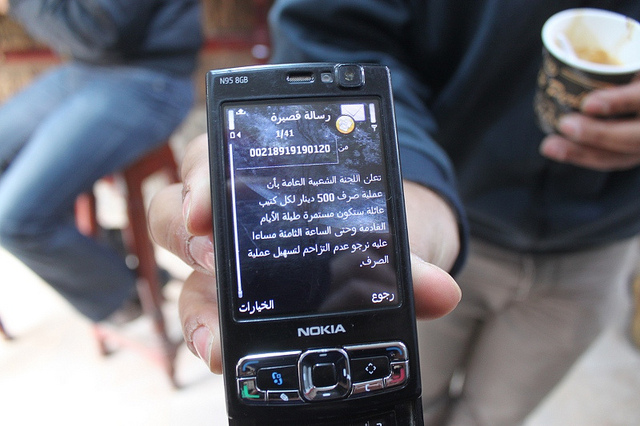
Chances are you’ve never heard of TruePosition. If you’re an AT&T or T-Mobile customer, though, TruePosition may have heard of you. When you’re in danger, the company can tell the cops where you are, all without you knowing. And now, it’s starting to let governments around the world in on the search.
The Pennsylvania company, a holding of the Liberty Media giant that owns Sirius XM and the Atlanta Braves, provides location technology to those soon-to-be-merged carriers, so police, firefighters and medics can know where you’re at in an emergency. In the U.S., it locates over 60 million 911 calls annually. But very quietly, over the last four years, TruePosition has moved into the homeland security business — worldwide.
Around the world, TruePosition markets something it calls “location intelligence,” or LOCINT, to intelligence and law enforcement agencies. As a homeland security tool, it’s enticing. Imagine an “invisible barrier around sensitive sites like critical infrastructure,” such as oil refineries or power plants, TruePosition’s director of marketing, Brian Varano, tells Danger Room. The barrier contains a list of known phones belonging to people who work there, allowing them to pass freely through the covered radius. “If any phone enters that is not on the authorized list, [authorities] are immediately notified.”
TruePosition calls that “geofencing.” As a company white paper explains, its location tech “collects, analyzes, stores and displays real-time and historical wireless events and locations of targeted mobile users.”‘The capability of doing mass tracking is possible.’
It can also work other ways: pinging authorities when a phone used by a suspected terrorist or criminal enters an airport terminal, bus station or other potential target. And it works just as well in monitoring the locations of phones the suspect’s phone calls — and who they call and text, and so on.
For the past four years, TruePosition has quietly taken that tracking technology global. In the U.S., Varano says, TruePosition sells to mobile carriers — though it’s cagey about whether the U.S. government uses its products. But abroad, it sells to governments, which it won’t name. Ever since it came out with LOCINT in 2008, he says, “Ministries of Defense and Interior from around the world began beating down our door.”
That’s got some surveillance experts and mobile activists worried. Keeping suspected terrorists away from nuclear power plants and discovering their networks of contacts is well and good. But in the hands of foreign governments — not all of whom respect human rights — TruePosition tech can just as easily identify and monitor networks of dissidents.
For a company that can do so much to find out where a mobile user is, few outside of the surveillance industry know much about TruePosition. That’s a deliberate strategy on the company’s part, to keep a “low profile from jump,” Varano says. It grants few interviews — a little-noticed Fox News story from 2009 is a rare exception — and discloses little about its foreign clients. Several surveillance experts contacted for this story were unfamiliar with the company.
The result, says Christopher Soghoian, a graduate fellow at Indiana University’s Center for Applied Cybersecurity Research, is to make TruePosition the most important global geolocation company you’ve never heard of. “It’s like that line about Keyser Soze from The Usual Suspects — the greatest trick the devil ever pulled was convincing the world he didn’t exist,” Soghoian says. “They’ve done the same thing. Staying entirely below the radar.”
